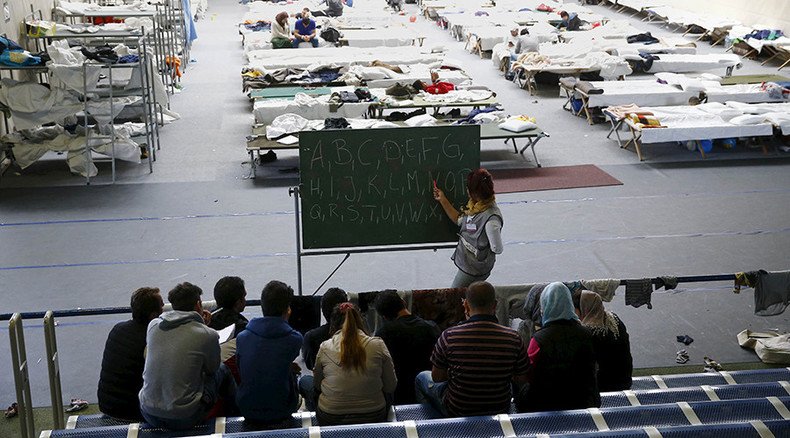German nurse shocked after being forced out of flat to make way for refugees

Having lived in the same flat for 16 years, a German woman is being forced to move out to make way for refugees, because building a new shelter is too expensive. The 51 year-old nurse, who has helped asylum seekers in the past, was shocked by the news.
Bettina Halbey, who lives alone in the small town of Nieheim, received a letter from her landlord and the local municipality at the start of September, Die Welt newspaper reported on Thursday.
“I was completely shocked and I can’t even begin to find the words to describe how the city has treated me,” Halbey told the German publication. “I have had to go through a lot of difficulties recently, and then I get this notice. It was like a kick in the teeth.”
Halbey will have until May 2016 to find a new place to live, along with her dog and her cat. The three-story building, where she rented a 90 sq/m flat will now be turned into accommodation for refugees, who are seeking to make Germany their new home.
READ MORE: ‘No more refugees’: Arson attack destroys future German migration center (VIDEO)
The mayor of Nieheim, Rainer Vidal, which has a population of just over 6,000, defended the decision to send the nurse packing, saying converting the building would be “the cheapest option.”
“A new residential unit for 30 refugees in Nieheim would cost €30,000 ($33,600). This solution will cost me nothing,” he told Die Welt.
Over half the population of Germany lives in rented accommodation and the country has laws to defend the rights of tenants.
“Normally, only a private individual can terminate the terms of a contract for personal use. A municipality cannot move into a flat as a legal entity, so the process is legally highly questionable,” Ulrich Ropertz, spokesman of the German Tenants' Federation, told the Telegraph.
Islamist recruiters target asylum seekers, German intelligence says http://t.co/FU9iUwuQ8cpic.twitter.com/itLBvDvn0Z
— RT (@RT_com) September 22, 2015Halbey, who brought up two sons as a single parent, became so incensed by the decision that she wrote about her plight on Facebook. The social media reaction was instant. Over 200,000 people have shared her story, which was also picked up by the German media.
The nurse says that she is not against Germany taking in refugees and she says she got on well with asylum seekers who had earlier become her neighbors.
“We take care of each other. Helping people, this is of the utmost importance to me,” Halbey said.
READ MORE: Most Germans approve of border controls amid refugee crisis – poll
Mayor Vidal slammed Halbey for going public with her complaints and added that she had been given ample time to find new accommodation.
"I find it very regrettable that the tenant has sought to go public with her issues. We have given her a generous period of notice, up until May of next year. We are also willing to help her find a new place to live. There have been several opportunities, but each one has failed because no one wants to offer her a flat because of her dog,” Vidal said.
On Thursday, the German government agreed to allocate a further €2 billion ($2.24 billion) for refugee housing, with €500 million ($560 million) to be spent on the construction of new accommodation centers. Local authorities have also implemented their own strategies, such as Hamburg’s plans to turn empty commercial properties into shelters, while empty apartments could serve the same purpose in Berlin.
Germany could receive between 800,000 and one million refugees this year, according to the UN, with an estimated 8,000 people arriving in Europe every day.
LISTEN MORE:












